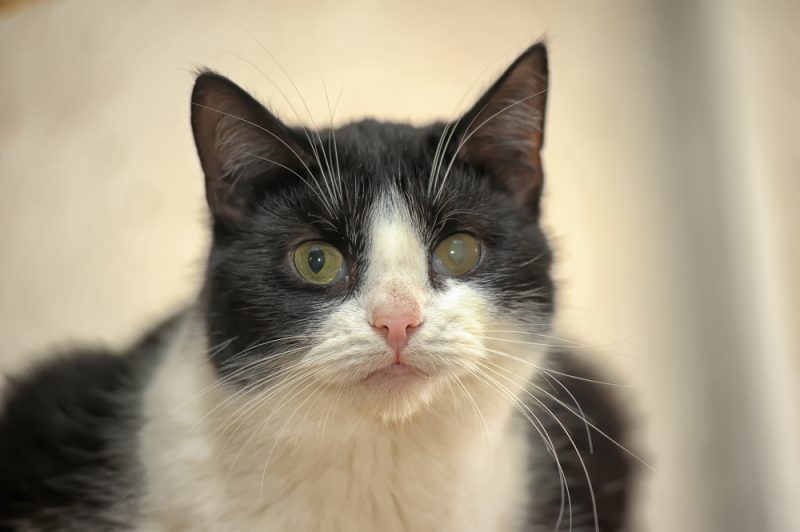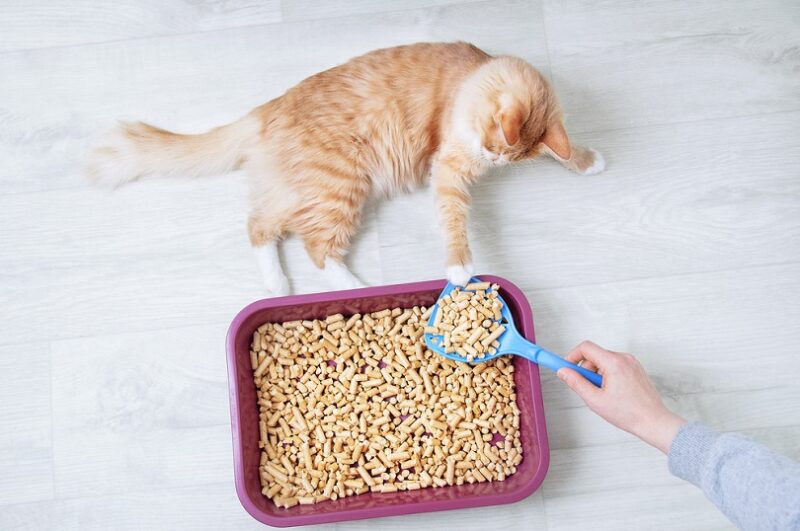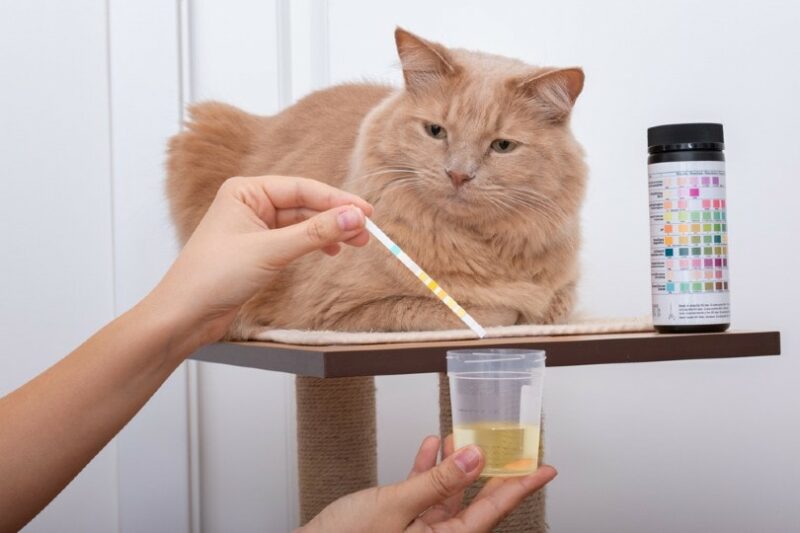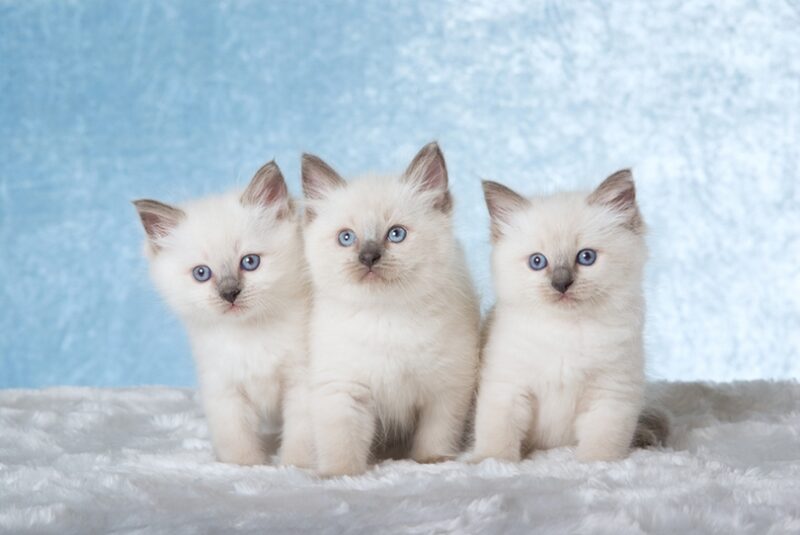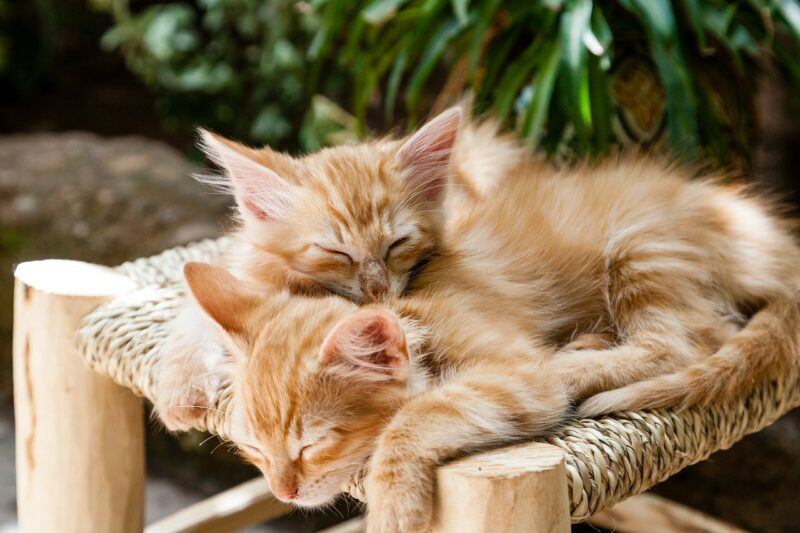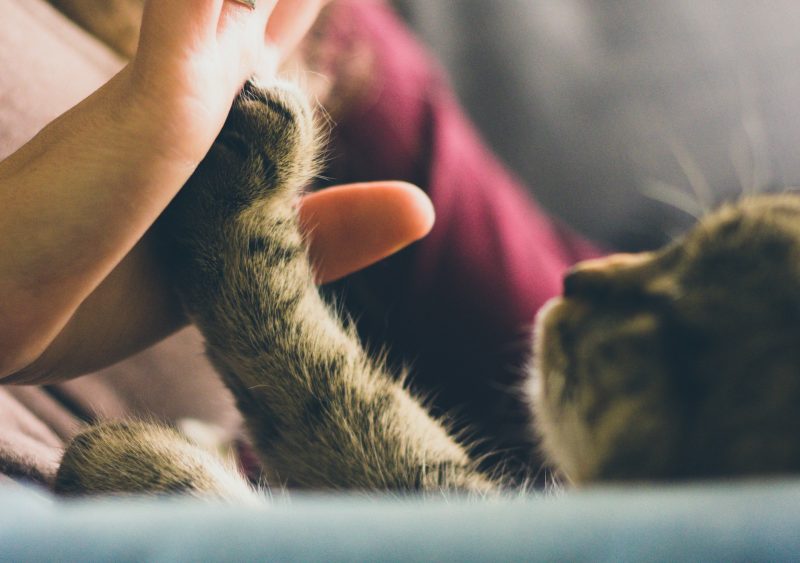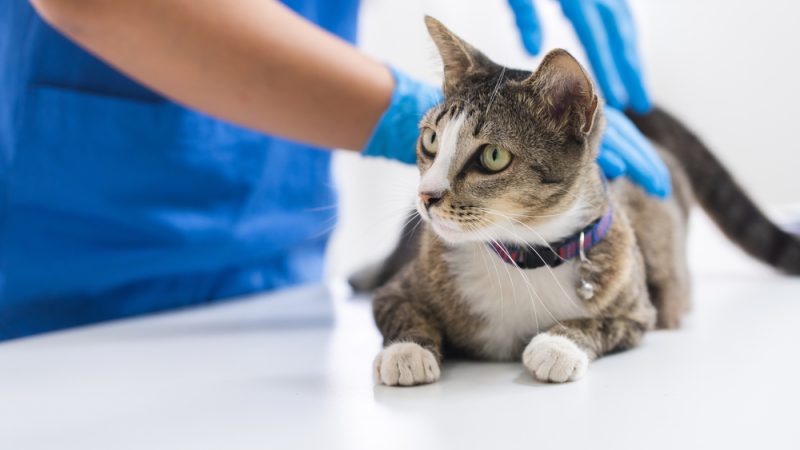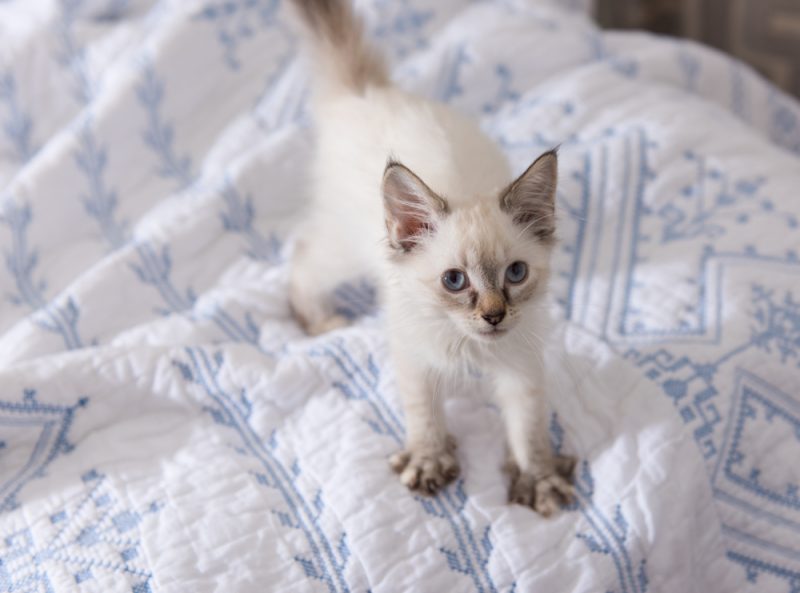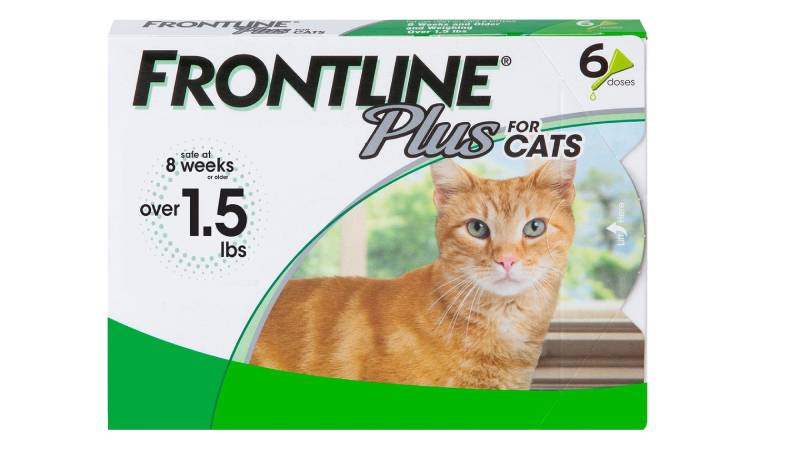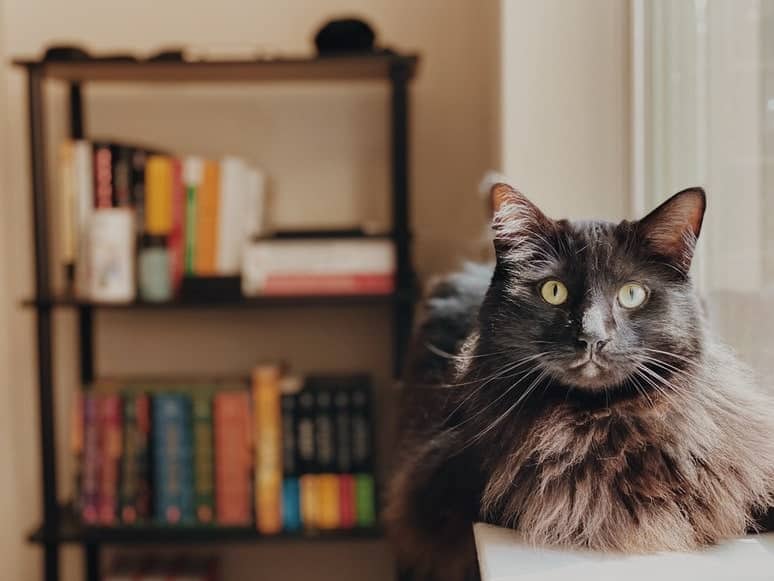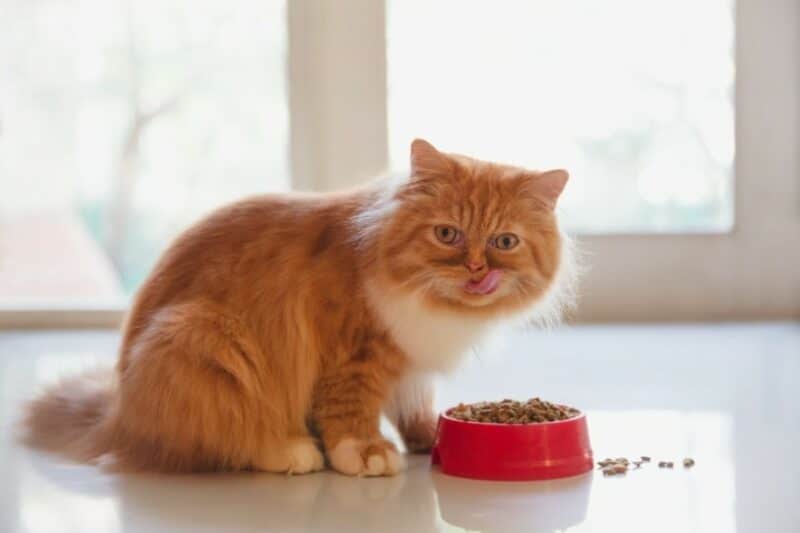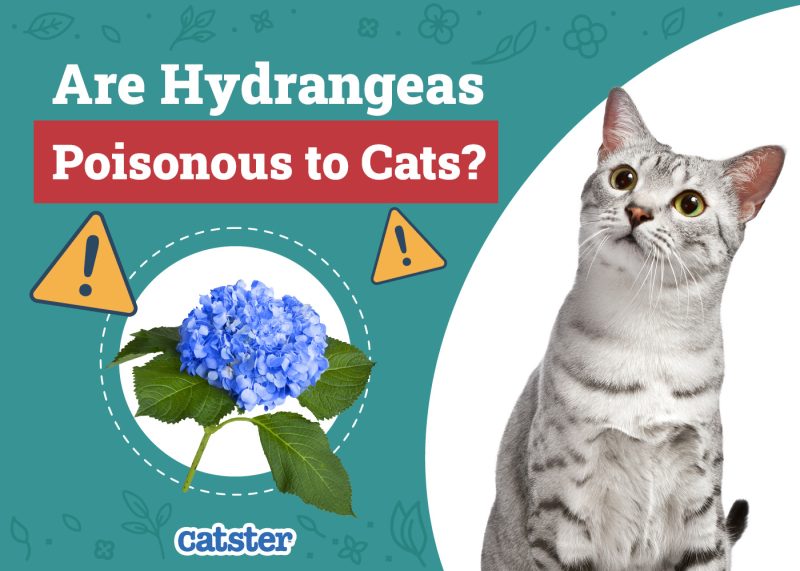Have you looked into your cat’s eyes recently, only to see a cloudy spot? If so, this may be a cataract. Cataracts aren’t as common in cats as in dogs, but they can occur (and some breeds, in particular, are more predisposed to developing them). But what exactly are cataracts? Why do they show up?
If you’re concerned your pet might have a cataract, keep reading. We’ll talk about what cataracts are, the signs of cataracts, the causes, how to treat them, and how to care for a kitty who has them.

What Are Cataracts?
A cat’s eye has a lens comprised of protein fibers and water. As light passes through this part of the eye, it focuses the light on the retina, which enables the cat’s vision. It’s a small but vital part of the eye, and cataracts affect it.
A cataract is just a term that describes an increased opacity in the lens. This increase in opacity creates a cloudy spot on the lens, and this clouded area interferes with the lens’s ability to do its job properly. That means a feline’s vision is affected to different degrees when cataracts appear.
The good news is that cataracts in felines are much less common than in canines (or even humans). However, some breeds are more prone to developing them, and older kitties are more likely to have them show up.
The good news is that cataracts aren’t as common in felines as in canines (or even humans). However, some breeds are more prone to developing them, and older kitties are more likely to have them show up.
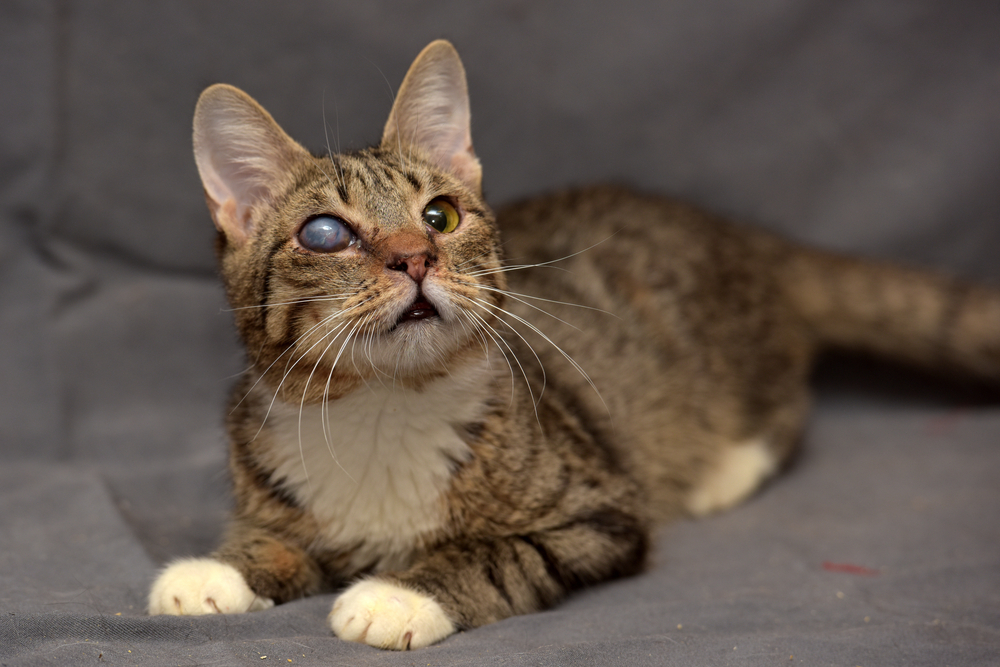
What Are the Signs of Cataracts?
You might be surprised to learn that the signs of cataracts can vary. This is, in part, due to how big or small a cataract is. Small cataracts may not have your pet showing signs of having them, but your vet could find them during a routine exam. The larger, more advanced cataracts are the ones that will often have your kitty showing signs you can notice. These signs could include:
- A hazy, clouded area in the eye
- A reluctance from the kitty to move around, especially in unfamiliar spaces
- Running into furniture/walls
- Trouble jumping on and off furniture
However, it should also be noted that a clouded, hazy area in the eye isn’t necessarily a cataract. As felines age, the eye changes, and something known as nuclear or lenticular sclerosis can also cause haziness in the eyes. Unlike cataracts, though, it does not significantly affect vision.
What Are the Causes of Cataracts?
There are many causes of cataracts in felines, as any sort of lens damage could result in a cataract forming.
However, the cause that is most often responsible for cataracts in cats is uveitis. What is uveitis? It is inflammation in the uvea, the internal vascular tissue of the eye. This inflammation can cause a kitty’s lens to lack the adequate nutrition, and some inflammatory debris may adhere to the lens and affect its transparency, which can be contributing factors in cataracts.
What causes uveitis? This can be caused by many things. Infections, trauma, and tumors can all result in uveitis. Viral infections are a common cause for uveitis and include feline immunodeficiency virus (FIV), feline leukemia virus (FeLV), feline infectious peritonitis (FIP), and feline herpesvirus-1 (FHV-1).
- Uveitis
- Congenital (present at birth)
- Aging
- Cancer
- Trauma
- Nutritional imbalances
- Lens luxation
- Glaucoma
- Diabetes mellitus
Also of note is that although cataracts from diabetes are quite common in canines, they are relatively rare in felines.
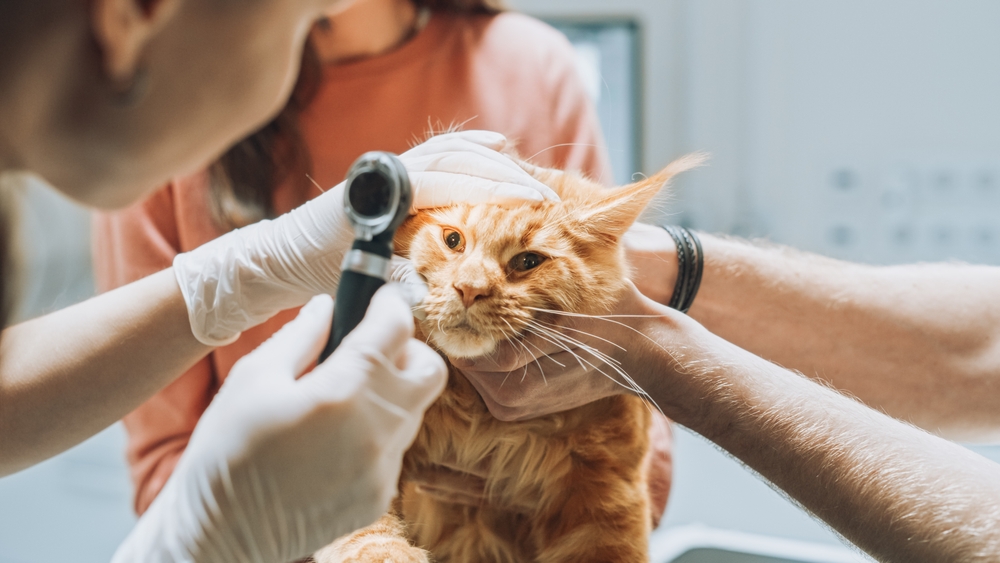
How Do I Care for a Cat With Cataracts?
How do you care for a cat with cataracts? The first thing to do if you suspect your cat has cataracts is to take them to the vet so the cataracts can be diagnosed. Your vet will give your kitty an eye exam and use some instruments, such as an ophthalmoscope, a slit lamp, and a tonometer, to check your pet’s eyes. If abnormal opacities are found during the exam, your cat will be diagnosed with cataracts. After an official diagnosis, your vet will want to determine the cause of the cataracts so they can decide the best treatment.
The main treatment is a surgery known as phacoemulsification. This surgery breaks down cataracts before removing them. The lens on a cat’s eye may also be replaced with an artificial one. This surgery will require a veterinary ophthalmologist, someone your vet will refer you to if needed.
However, surgery isn’t always the answer for cataracts. If there is too much inflammation in the eye, then this surgery might not be an option, and unfortunately, there aren’t medications that can get rid of cataracts or even slow their progress. The good news is that, for many cats, cataracts aren’t painful, although some other eye problems associated with them are. Also, most felines are resilient and adjust well to their new lack of vision.
Though there aren’t medications that can rid a cat of cataracts, your vet may prescribe medications like non-steroidal anti-inflammatories or corticosteroids to reduce the amount of inflammation in your pet’s eye. Controlling inflammation with cataracts is essential, as glaucoma can be a complication of inflammation and cataracts. Your vet may also treat any underlying conditions that are causing the cataracts.
If you need to speak with a vet but can't get to one, head over to PangoVet. It's an online service where you can talk to a vet online and get the advice you need for your pet — all at an affordable price!

If your cat has cataracts and ends up losing some vision, you’ll need to accommodate them at home. Ensure they can easily access their litter box, food and water bowls, and other resources by keeping these on low surfaces they can reach. Use gates to block the cat from any areas in the home that could prove dangerous without proper vision. Also, avoid moving items in your home around too often, as this could confuse your cat.

Frequently Asked Questions
You might still have questions about cataracts in felines, so here are some answers to a few frequently asked questions!
How old are cats when they first get cataracts?
Cataracts most commonly are found in felines who are aged approximately 10 years or older. However, cataracts can show up in cats of any age (including kittens).
How quickly do cataracts progress?
How quickly cataracts progress depends on various factors, such as the age of the cat, what is causing the cataracts, and how soon they see a vet after the cataracts appear.
What breeds are more prone to developing cataracts?
Some of the breeds that are predisposed to getting cataracts include Himalayans, Persians, Russian Blues, Birmans, and Siamese.

Conclusion
Cataracts are less common in felines than canines and humans, but they do occur. They show up for a variety of reasons. They can be secondary to uveitis or trauma or can appear at birth (congenital), with age, or with other eye diseases. While the most significant sign of a cataract is a cloudy spot in the eye, it’s important to know that other things can also cause eye haziness. So, if you see an area like this in your pet’s eye, getting them to a vet for a proper diagnosis is your next step.
The only way to get rid of cataracts is through surgery, but surgery isn’t always an option. If it isn’t an option for your pet, your vet will likely treat the underlying cause of your kitty’s cataracts instead. This means your cat may end up with some loss of vision, so you’ll need to make some accommodations to your home to keep them safe.
Featured Image Credit: Anna Krivitskaya, Shutterstock
